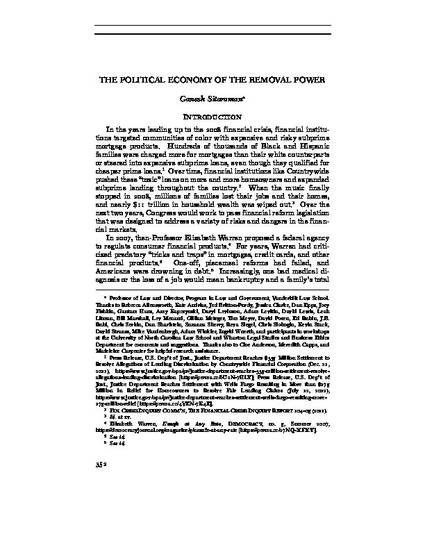
- the removal power,
- financial reform,
- consumer financial protection
In the years leading up to the 2008 financial crisis, financial institutions targeted communities of color with expensive and risky subprime mortgage products. Hundreds of thousands of Black and Hispanic families were charged more for mortgages than their white counterparts or steered into expensive subprime loans, even though they qualified for cheaper prime loans. Over time, financial institutions like Countrywide pushed these "toxic" loans on more and more homeowners and expanded subprime lending throughout the country. When the music finally stopped in 2008, millions of families lost their jobs and their homes, and nearly $ii trillion in household wealth was wiped out. Over the next two years, Congress would work to pass financial reform legislation that was designed to address a variety of risks and dangers in the financial markets.
In 2007, then-Professor Elizabeth Warren proposed a federal agency to regulate consumer financial products. For years, Warren had criticized predatory "tricks and traps" in mortgages, credit cards, and other financial products. One-off, piecemeal reforms had failed, and Americans were drowning in debt. Increasingly, one bad medical diagnosis or the loss of a job would mean bankruptcy and a family's total economic devastation. Warren argued that other consumer products, like toasters, were regulated at the federal level. Financial products were not so different. By 2009, Congress and the President picked up Warren's proposal, and they made it one of the central parts of the coming financial reform package.
Available at: http://works.bepress.com/ganesh-sitaraman/22/
